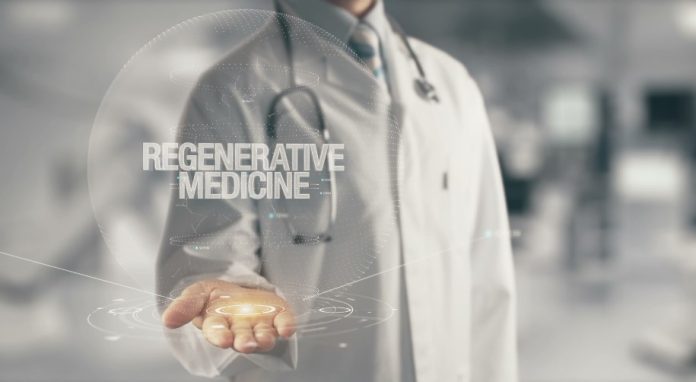Table of Contents
Whether To Choose Regenerative Medicine Or Not? – A Detailed Insight
In recent years, the field of regenerative medicine has seen a surge in interest and innovation. With promises of healing damaged tissues, curing chronic diseases, and even reversing the effects of ageing, it’s no wonder that regenerative treatments like stem cell treatment are gaining a lot of traction. But what exactly is regenerative medicine, and is it the right choice for you?
What is Regenerative Medicine?
Regenerative medicine is an innovative field of medical science focused on repairing, replacing, regenerating, and reprogramming cells, tissues, and organs to restore or establish normal function.
This approach contrasts with traditional treatments that may only alleviate symptoms or slow disease progression.

The ultimate goal of regenerative medicine is to tackle the root cause of diseases by enabling the body to heal itself more effectively.
Key Components of Regenerative Medicine
1. Stem Cell Therapy
Stem cells have the unique ability to develop into many different cell types in body during the early life and growth. In many tissues, they serve as a sort of internal repair system, dividing essentially without limit to replenish other cells. Scientists harness these properties to replace diseased or damaged tissues in conditions like Parkinson’s disease, diabetes, and heart disease.
2. Tissue Engineering and Biomaterials
Tissue engineering is a strategy where biologically compatible scaffolds are implanted in the body at sites where new tissue growth is needed.
These scaffolds, made from various materials, including natural and synthetic polymers, guide the growth of new tissue from the body’s own cells or from implanted stem cells.
3. Gene Therapy
This involves correcting defective genes responsible for disease development. By introducing or altering certain genes in a patient’s cells, researchers aim to treat or prevent a wide range of genetic disorders, including some forms of blindness, haemophilia, and cystic fibrosis.
The Potential and Promise of Regenerative Treatments
The appeal of regenerative medicine lies in its potential to provide solutions where traditional treatments may fall short. For example, at the Mayo Clinic, patients with orthopaedic conditions are carefully evaluated to understand what regenerative medicine can realistically offer them. Treatments are tailored to the individual, based on solid scientific evidence and FDA oversight, filling a critical gap for those who may not be suitable for surgery.
Similarly, the Cleveland Clinic has shared stories of success with regenerative medicine, such as CAR-T cell therapy’s remarkable impact on cancer treatment. This approach modifies a patient’s T cells to target and destroy cancer cells, offering new hope where conventional therapies have been ineffective.
The Realities Behind the Hype

However, as promising as regenerative medicine may seem, it’s crucial to approach it with realistic expectations. The field is still in its infancy, and while the successes are compelling, they are not guaranteed for every patient or condition. The Mayo Clinic emphasises the importance of educating patients about the realistic outcomes of regenerative treatments, addressing misinformation, and ensuring treatments are based on sound scientific evidence.
Personalised Medicine: The Future of Regenerative Treatments
One of the most exciting aspects of regenerative medicine is its potential for personalised treatments. As the science progresses, there is a growing recognition that a one-size-fits-all approach is not effective.
Research at institutions like HSS is focused on understanding how individual patients respond to treatments such as PRP, with the goal of tailoring therapies to each patient’s unique needs.
This personalized approach is not just about selecting the right treatment for the right patient but also about determining the optimal timing and method of delivery to maximize effectiveness and minimize risks.
Making the Decision: Is Regenerative Medicine Right for You?
Deciding whether to pursue regenerative medicine is a deeply personal choice that should be made based on a thorough understanding of the potential benefits and risks. It’s essential to consult with healthcare providers knowledgeable about regenerative medicine and can provide a realistic picture of what to expect. Be wary of clinics or treatments that promise miraculous cures without solid scientific evidence to back them up.
For many, regenerative medicine offers a hopeful alternative to traditional treatments, especially when conventional therapies have not provided relief. Whether it’s the potential for healing damaged tissues, treating chronic diseases, or improving quality of life, regenerative medicine holds a promise that is hard to ignore.
Key Takeaways
As regenerative treatments like stem cell treatment continue to evolve, they offer exciting possibilities for the future of healthcare. However, it’s important to approach these treatments with a clear understanding of their potential and limitations. You can make the best decision for your health and well-being by staying informed and consulting with trusted medical professionals.


